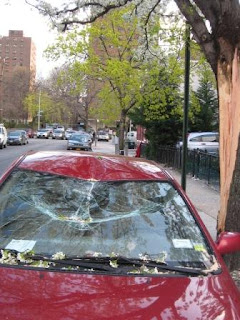The Nevada State Assembly has just voted for a bill that would outlaw job discrimination against transgender people.
Now the bill has to go before the state Senate for a vote. The bill's supporters believe they have the votes to pass it, but no one seems to know whether Governor Bill Sandoval will sign it.
One legislator tried to claim that there aren't legal barriers to employment for transgender people, and others pointed out that there haven't been any discrimination cases involving transgender people. However, Paul Aizley, one of the bill's sponsors, says that the reason why there haven't been court cases because transgender people lack the legal standing to bring them. To that, I would add that most of us also don't have the economic standing to do so.
Although I'm not a fan of big government and more legislation, I don't see how else to make conditions equitable for transgender people who want and need to work. While most people will do what is fair, others need incentives or sanctions to do so. On the other hand, discrimination cases are notoriously difficult to prove. A gay black man I know says that human resource offices hide behind claims that an applicant "isn't a good fit with the culture of the organization," or some such thing. He is about half a dozen years older than I am, earned a PhD a long time ago and has published two books. Yet he's still working as an adjunct instructor in a couple of different colleges.
One thing I find interesting is that a state like Nevada--which is actually quite conservative once you get out of Las Vegas and Reno--is basically on the same level, at least when it comes to transgender rights, as New York. This State's anti-discrimination laws were passed with language to protect gays and lesbians, but not transgenders because, as more than one legislator said, "the upstate Republicans wouldn't vote for" the bill if it included protection for gender identity and expression. And those same legislators who passed the bill claimed that once the bill became law, it could be changed.
That was almost forty years ago. In the meantime, several other states and about 100 municipalities--including New York City and Rochester (which, believe it or not, was one of the first in the nation)--passed their own laws and ordinances aimed at protecting transgendered people. Now it looks like Nevada might be next.
For once, at least one group of people is hoping that something that happens in Vegas doesn't have to stay in Vegas!
Now the bill has to go before the state Senate for a vote. The bill's supporters believe they have the votes to pass it, but no one seems to know whether Governor Bill Sandoval will sign it.
One legislator tried to claim that there aren't legal barriers to employment for transgender people, and others pointed out that there haven't been any discrimination cases involving transgender people. However, Paul Aizley, one of the bill's sponsors, says that the reason why there haven't been court cases because transgender people lack the legal standing to bring them. To that, I would add that most of us also don't have the economic standing to do so.
Although I'm not a fan of big government and more legislation, I don't see how else to make conditions equitable for transgender people who want and need to work. While most people will do what is fair, others need incentives or sanctions to do so. On the other hand, discrimination cases are notoriously difficult to prove. A gay black man I know says that human resource offices hide behind claims that an applicant "isn't a good fit with the culture of the organization," or some such thing. He is about half a dozen years older than I am, earned a PhD a long time ago and has published two books. Yet he's still working as an adjunct instructor in a couple of different colleges.
One thing I find interesting is that a state like Nevada--which is actually quite conservative once you get out of Las Vegas and Reno--is basically on the same level, at least when it comes to transgender rights, as New York. This State's anti-discrimination laws were passed with language to protect gays and lesbians, but not transgenders because, as more than one legislator said, "the upstate Republicans wouldn't vote for" the bill if it included protection for gender identity and expression. And those same legislators who passed the bill claimed that once the bill became law, it could be changed.
That was almost forty years ago. In the meantime, several other states and about 100 municipalities--including New York City and Rochester (which, believe it or not, was one of the first in the nation)--passed their own laws and ordinances aimed at protecting transgendered people. Now it looks like Nevada might be next.
For once, at least one group of people is hoping that something that happens in Vegas doesn't have to stay in Vegas!














